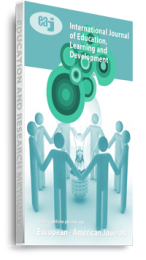This study investigated the relationship between cultism-associated insecurity and the academic achievement of the Nigerian students. The study employed the expost-facto research design. Two research hypotheses were formulated to give direction to the study. A total of 748 students sampled from a population of 37,416 senior secondary three (SSIII) students were selected for this study. Cultism-Associated Insecurity and the Learning of the Nigerian Students Questionnaire (CAILNSQ) were administered on the selected respondents for the purpose of data gathering. The instrument has a reliability coefficient of 0.81. The two hypotheses were tested with the regression and ANOVA statistical techniques at 0.05 significance level. At the end of data analysis it was revealed that there is significant relationship between cultism-induced emotion and academic achievement of the Nigerian secondary school students, and also, cultism-associated insecurity significantly predict the academic achievement of students. Based on the revelations made in this study, it was recommended among others that novelty or carnival days should be introduced and observed occasionally as days of relaxation, fun and enjoyment. Those days will among other things create a placebo effect and diffuse academic tension, bringing staff and students under a common denominator of merry-making to reduce fear of the unknown.
Keywords: insecurity; cultism; emotion; academic achievement, student learning

